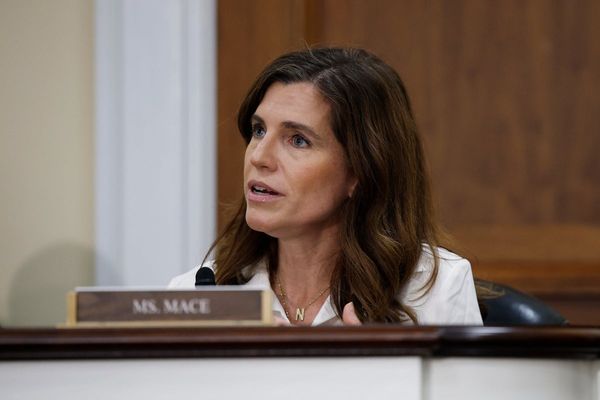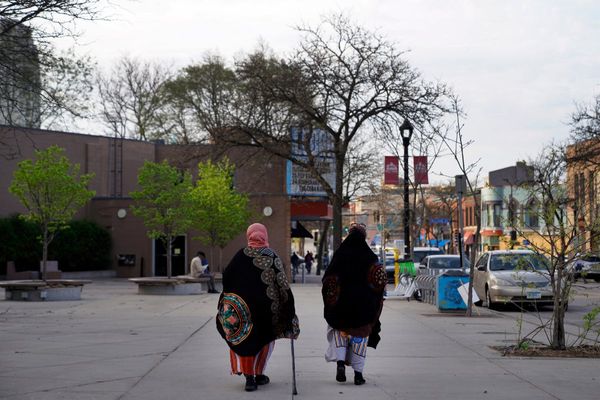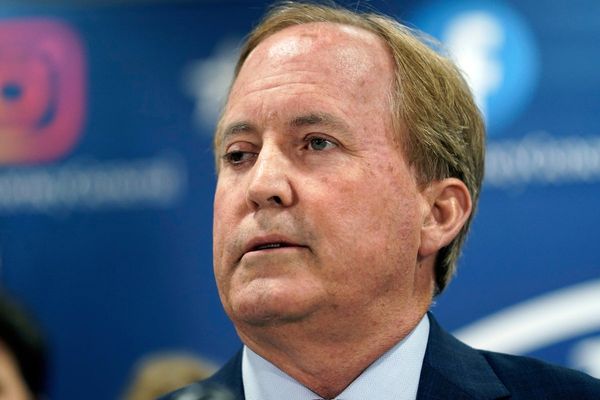
Summary of the day
Farmers protested near the port of Antwerp, causing major disruptions in the area.
Farmers staged a protest in Sofia today, calling for the resignation of Bulgaria’s minister for agriculture, Kiril Vatev.
Nikolai Denkov, the Bulgarian prime minister, said that protesters’ demand for the minister’s resignation is not part of negotiations.
The Greek prime minister, Kyriakos Mitsotakis, met with farmers’ representatives in Athens.
The Greek government offered further concessions to farmers.
The head of France’s biggest farming union said protests could resume if the government does not do more to meet demands for better pay and working conditions.
Representatives of the agriculture sector shared their concerns at the session of the European parliament’s agriculture committee.
The Bulgarian prime minister, Nikolai Denkov, said that protesters’ demand for the resignation of the country’s agriculture minister, Kiril Vatev, “is not a basis for negotiations,” Novinite reported.
Christiane Lambert, representing farmers’ lobby Copa-Cogeca, said during a session of the European parliament’s agriculture committee that over the past months and years European farmers have raised concerns about the difficulties they are facing.
“They have raised the alarm without always having being heard,” she said.
She added:
Farmers have expressed economic concerns, as well as bureaucratic obstacles and difficulties linked to the transitions.
It’s very difficult to make that compatible with the multiple crises we are living though. First we had in 2020 the Covid crisis. Then energy prices simply exploded – energy prices are very important for agriculture.
Then Russia’s war on Ukraine also caused a certain number of difficulties on trade flows, as well as disturbances in the markets when it comes to poultry, eggs, grains, oil – all of this has been very important.
Another element of concern, she said, has been the EU’s new common agricultural policy (CAP) and new rules linked to the bloc’s Green Deal.
Pointing to protests across the continent, she told MEPs:
We are just a couple of months away from the European elections and we see that farmers are pessimistic and angry. We need to bring hope for them.
Updated
Greece offers farmers more concessions
The Greek government has offered farmers more support, Reuters reports.
The prime Minister, Kyriakos Mitsotakis, met today with farmers’ representatives.
“I believe we can find common ground, taking into account your justified concerns,” he said.
The Greek government said today that farmers will be eligible for cheaper electricity for two years from April.

Updated
One of the aspects of the protest most alarming European politicians is the enthusiastic adoption of the farmers’ cause by a resurgent populist far right, which sees in the revolt a promising new front in its long-running war on “out-of-touch elites”, “radical environmentalism” and “Brussels diktats”.
Months from European parliament elections in which far-right and “anti-European” parties are projected to make big gains, farming – which represents just 1.4% of EU gross domestic product – has climbed to the top of the political agenda.
In the Netherlands, a new populist party, the Farmer-Citizen Movement (BBB), emerged from the “nitrogen wars”, channelling rural resentment and opposition to “radical environmentalism”.
The BBB swept the board in provincial elections last year and while it failed to repeat that performance in November’s general election, it is one of the parties negotiating to form the next Dutch government with far-right, anti-Islam provocateur Geert Wilders.
The far-right Alternative for Germany – now second in the polls – has forcefully backed the farmers, as have members of Marine Le Pen’s National Rally in France, which has said it wants the “abolition”, pure and simple, of the European green deal.
The farmers’ protests make an undeniably appealing bandwagon for far-right and populist parties, an extension of the culture wars that allows them to rail against what they portray as an increasingly dictatorial EU, as well as an urban, international elite ignoring – or attacking – oppressed rural workers.
Here are the latest images from the farmers’ protest in Antwerp.


Farmers call for Bulgarian minister to resign
Farmers staged a protest in Sofia today, calling for the resignation of Bulgaria’s minister for agriculture, Kiril Vatev.
Novinite reports that farmers and animal breeders from 26 agricultural organisations attended the demonstration. They argue a recent agreement with the government falls short of addressing their concerns.

How are policymakers responding to farmers' demands?
The wave of rural revolt has set alarm bells ringing in national capitals and Brussels. The European Commission has made multiple recent concessions in an effort to ease tensions, with its president, Ursula von der Leyen, insisting the bloc had heard farmers’ concerns.
The commission has shelved plans to cut pesticide use, saying it had become “a symbol of polarisation”.
Last month, it unveiled an “emergency brake” on the most sensitive Ukrainian products and delayed rules on setting aside more land. In its latest recommendations for cuts to greenhouse gas emissions, it has also eased up on agriculture, removing from a previous draft the stipulation that farming would have to cut non-CO2 emissions by 30% from 2015 levels.
At a national level, too, governments have scrambled to respond: Berlin watered down its plans to cut diesel subsidies while the Italian prime minister, Georgia Meloni, has agreed to partially reinstate the suspended tax exemption, at least for low earners.
Paris has scrapped a diesel tax increase and promised measures worth €400m, plus €200m more in cash aid.
The government has also said it was now “out of the question” that France would agree to the planned EU-Mercosur trade deal as it stood, and promised the government would stop imposing stricter rules on its farmers than EU regulations demanded.
Why are farmers protesting across Europe?
The farmers’ protest movement has snowballed across Europe in recent months, accelerating rapidly to leave – so far - only Austria, Denmark, Finland and Sweden untouched.
Farmers have blockaded major cities such as Paris, brought the centres of others, such as Berlin, to a halt, closed down motorways, dumped manure, hurled eggs, trashed supermarkets, set fire to hay bales and pallets, and clashed with police.
Many protests are at least partly country-specific: in the Netherlands, government plans to cut nitrogen emissions in half by 2030, partly by slashing livestock numbers; in Italy, the scrapping of an income tax exemption in force since 2017; in Germany, the phasing out of tax breaks on agricultural diesel to balance the budget.
But uniting them all are concerns shared across mainland Europe: falling product prices, rising costs, over-powerful retailers, cheap foreign imports and – in particular – EU environmental rules that many farmers see as unfair and economically unrealistic.
Some problems are structural: the EU’s €55bn common agricultural policy (CAP) is based on economy of scale, which has encouraged consolidation (the number of farms in the bloc has fallen by more than a third since 2005) and left many larger operations overburdened with debt and smaller ones struggling to stay competitive.
Others are temporal. The past two years have brought a vicious squeeze on margins, triggered by the Covid pandemic and, more significantly, Russia’s war on Ukraine. Farmers’ costs – fuel, electricity, fertiliser and transport – have soared.
At the same time, efforts by governments and retailers to limit the impact of the cost of living crisis on consumers have hit prices. Eurostat data shows the prices farmers get for their products fell on average by almost 9% between late 2022 and late 2023.
That squeeze is being further exacerbated by non-EU imports, often from countries and regions where farmers are not generally subject to the same strict standards and regulations as in the bloc – and so can compete unfairly on price.
A flood of cheap grain from Ukraine – on which the EU initially waived quotas and duties after Russia’s full-scale invasion – prompted Polish farmers to begin blocking cross-border roads as early as spring 2023.
Free-trade agreements with non-EU countries are also a source of resentment, particularly a forthcoming deal with the Mercosur bloc of Argentina, Brazil, Paraguay and Uruguay – all of which use hormones, antibiotics and pesticides banned in the EU.
The climate crisis – droughts, floods, heatwaves and other extreme weather events – is increasingly affecting output, particularly in southern Europe. But the readiest focus for farmers’ ire is EU environmental legislation.
The European green deal, aimed at achieving climate neutrality across the bloc by 2050, looks like a bridge too far for many farmers, with targets including halving pesticide use by 2030, cutting fertiliser use by 20%, devoting more land to non-agricultural use – for example, by leaving it fallow – and doubling organic production.
French farming union boss says protests could restart
The head of France’s biggest farming union said protests could resume if the government does not do more to meet demands for better pay and working conditions, Reuters reported.
The government is in talks with farmers. But the union boss, Arnaud Rousseau, said the government was not doing enough.
“We are not moving at the right pace,” Rousseau said in an appearance on TF1.
Asked if farmers could restart the roadblocks, he said: “Very probably.”
[#Thread 1/5] 📺🔴Dans #Bonjour @TF1 | pour @rousseautrocy, président #FNSEA : 🎙️"Ce mouvement a fait naître des attentes énormes de la part de nos adhérents comme de tous les agriculteurs. Les Français attendent une alimentation de qualité. Ces attentes doivent s’accompagner… pic.twitter.com/zVqZGpKCa0
— La FNSEA (@FNSEA) February 13, 2024
Updated
France’s farm ministry today reduced its estimates of winter grain sowing, with the soft wheat area seen at its second-lowest in 30 years, Reuters reports.
This comes after heavy rain disrupted field work.
“Adverse weather at the end of 2023, with cumulative rainfall 17% above normal in the fourth quarter, severely disrupted field work,” the ministry said.
Excess moisture will lead to some fields being dug up and some planting being postponed in favour of spring crops.
Greek leader to meet farmers' representatives
The Greek prime minister, Kyriakos Mitsotakis, is set to meet with two groups of farmers in Athens today to discuss protests and proposed relief measures, Kathimerini reports.

Here are more photos from the farmers’ protest in Antwerp.


Welcome to the blog
Good morning and welcome back to the blog.
Today we will be delving into the latest farmers’ protests and policymakers’ efforts to address the agriculture sector’s concerns.
Protests are expected to continue in several European countries. At the same time, the European parliament’s committee on agriculture and rural development will hold an exchange of views with stakeholders.
We will also be keeping an eye on political moves as Europe enters campaign season.
'Major disruption': Farmers protest at Antwerp port
Hundreds of tractors were on their way to the port of Antwerp this morning, as young farmers said they want to show their determination and put pressure on political discussions, RTBF reported.
Photos from the port area show farmers and their tractors gathering.
The port operator said in a statement early today:
Farmers’ actions are causing major disruption in the Antwerp port area.
There are blockades at the Noordlandbrug, Tijsmanstunnel, Luithagen, Oosterweelsteenweg, Luchtbal. Moreover, the nuisance is rapidly spreading to other parts of the port.

Updated







